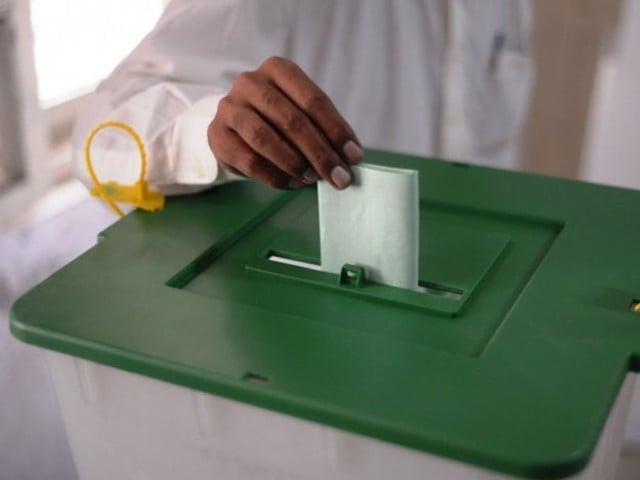FAFEN to deploy 19,000 observers for election day
85% of the polling stations in 272 NA constituencies will be observed

The accredited non-partisan and trained citizens will observe the election day environment outside polling stations, incidents of electoral and political violence, pre-polling preparations at the polling stations. PHOTO: AFP
The voting and counting process will be observed at 272 polling stations setup by the Election Commission of Pakistan (ECP)for the National Assembly constituencies.
The ECP has also directed the Provincial Election Commissioners (PECs) in all the provinces to issue accreditation cards to observers.
Fafen will assign 9,884 observers in Punjab, 4,225 in Sindh, 3,549 in Khyber-Pakhtunkhwa, 1,117 in Balochistan and 225 in the Islamabad Capital Territory.
FAFEN seeks age-wise population data to count eligible voters
The accredited non-partisan and trained citizens will observe the election day environment including incidents of electoral and political violence and pre-balloting preparations at the polling stations.
Furthermore, they will also look into the voting processes inside the polling booths and stations, ballot, vote -counting and ECP forms-filling processes at the polling stations and the barriers to women voting.
The observers will also be trained to gather the required data and documentation from the assigned polling stations to enable the network to carry out Parallel Vote Tabulations (PVTs).
Season of politics: Election camps bustling with activity
The PVTs will provide a comparison of a statistically-valid sample of polling stations’ vote-tallies gathered by the election day observers against official copies of the election forms.
Fafen will also observe the vote consolidation process at the offices of Returning Officers (ROs) through 272 consistency coordinators.
Based on its observation, Fafen will roll-out its preliminary report on July 27.
Pre-election observation
In addition to the election day observation, the network has observed the pre-election phase through 272 constituency coordinators and 130 district coordinators to assess the political environment and implementation of election-related laws, rules and regulations since January 2018.
FAFEN rolls out 'most comprehensive' election portal in Pakistan
The purpose of this observation is to contribute to the evolution of an election process that is free, fair, transparent and accountable, in accordance with the requirements laid out in the Elections Act, 2017.
Based on its observation, the network has produced periodic updates, information briefs and reports in an effort to provide objective, unbiased and evidence-based information about the quality of electoral and political processes to the ECP, political parties, media, civil society organisations and the citizens.



















COMMENTS
Comments are moderated and generally will be posted if they are on-topic and not abusive.
For more information, please see our Comments FAQ